Family is often the first place we turn when life gets tough. But even then, there’s only so much you can ask of someone.
One Redditor and her husband spent years saving £50,000 for a house deposit. Just as they were finally ready to buy, some relatives demanded she hand over half to secure an apartment for her homeless sister.
After all that hard work, she isn’t willing to give it up—and for that, she’s being branded selfish and horrible. Scroll down to read her story and let us know: is she right to stand her ground?
The woman and her husband spent years saving £50K for a house deposit

Image credits: Frank van Hulst / Unsplash (not the actual photo)
But her family now insists she give up half to buy an apartment for her homeless sister

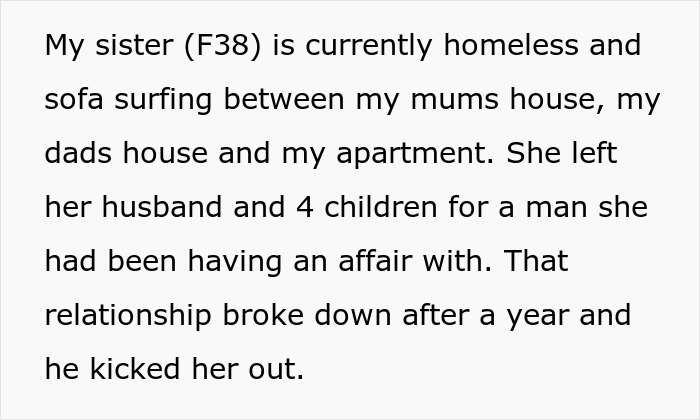



Image credits: freepik (not the actual photo)

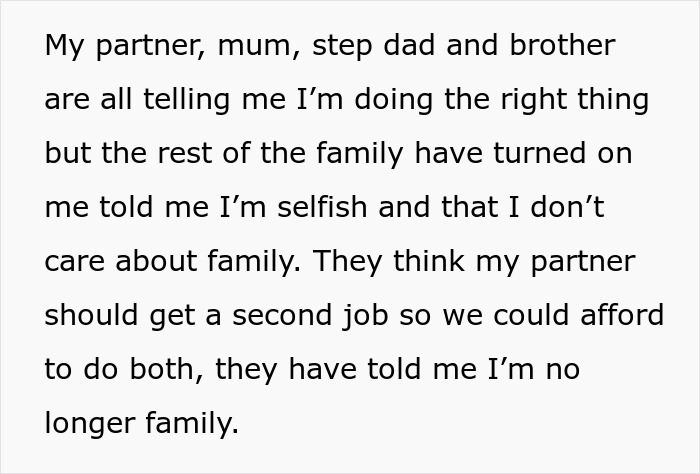
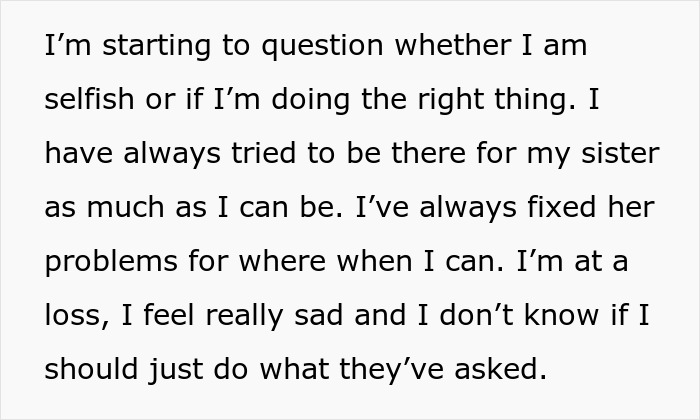

Image credits: katemangostar / freepik (not the actual photo)


Image credits: Stockbusters / freepik (not the actual photo)
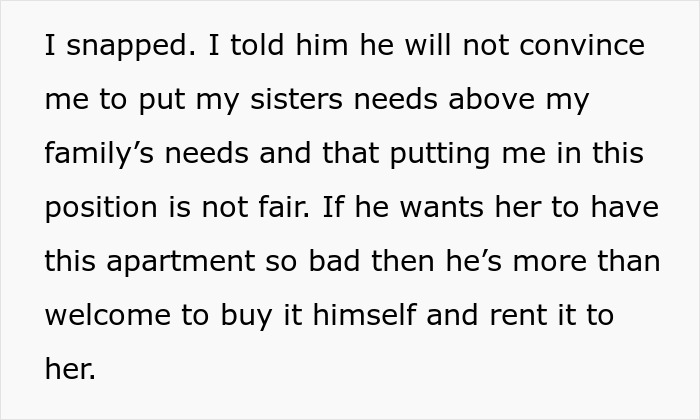





Image credits: cookie_studio / Freepik (not the actual photo)

Image credits: Fit-Statistician8031
Why we feel guilty when we say no
The word no may be short—just two letters, one syllable—but it carries a weight that can feel overwhelming. For many, it’s one of the hardest words to say.
In fact, according to a study published in the Journal of Personality and Social Psychology, 77% of people avoid rejecting others because they fear the possible fallout.
Often, that fear comes down to guilt. Saying no feels like letting someone down, especially when the request comes from family. Just like in this story—where refusing means being branded selfish.
But what’s really behind this guilt?
“Guilt is the feeling you have when you think you’ve done something wrong,” explains Sharon Martin, DSW, LCSW, author of The Better Boundaries Workbook. “So, when you feel guilty about setting boundaries, it’s because you don’t think you have the right to protect yourself, say no, have your own ideas, or ask for something.”
If you grew up in a dysfunctional family or developed codependent tendencies, Martin adds, asserting yourself can feel even harder.
That’s because setting boundaries may seem like breaking unspoken rules. Even choosing to prioritize your own needs can bring on a wave of discomfort and doubt.
When you’re raised in an environment where other people’s wants consistently take precedence, it makes sense that looking after yourself feels unnatural.

Image credits: Getty Images / Unsplash (not the actual photo)
How to feel less guilty about setting boundaries
The most important step, Martin suggests, is to reframe how you view boundaries. Instead of seeing them as rejection, view them as a way to put yourself first.
“Setting boundaries is about acknowledging personal limits and honoring your need for self-care. Keep in mind that everyone needs and deserves self-care,” says Martin. “It’s not wrong to consider your needs and take steps to meet them. Self-care is how we maintain good physical and mental health.”
Here are a few practical tips to set boundaries without drowning in guilt:
Express gratitude first. Acknowledge the request and thank the person for thinking of you. It shows respect while softening your refusal. Example: “Thanks so much for asking me to help with [request]. Although I can’t help, I appreciate you thinking of me.”
Be clear and direct. Don’t overexplain or apologize. A simple “Unfortunately, I can’t commit to that right now” conveys confidence and avoids confusion.
Offer an alternative (if it works for you). Suggest another way to help only if it genuinely feels right. Example: “I can’t help with [request], but I could contribute [alternative].”
Prioritize your needs. Remind yourself it’s okay to put your energy toward what matters most. Example: “I need to focus on [your own commitment] right now, so I won’t be able to help.”
Practice saying no. It feels awkward at first, but the more you do it, the easier it gets.
Ultimately, Martin reminds us that boundaries are never a loss—they’re a win-win. They allow you to take charge of your own life and do what truly matters to you, while also strengthening your relationships through genuine connection and mutual respect.
Commenters overwhelmingly supported the author, arguing that if the relatives want the apartment so badly, they should pay for it themselves



















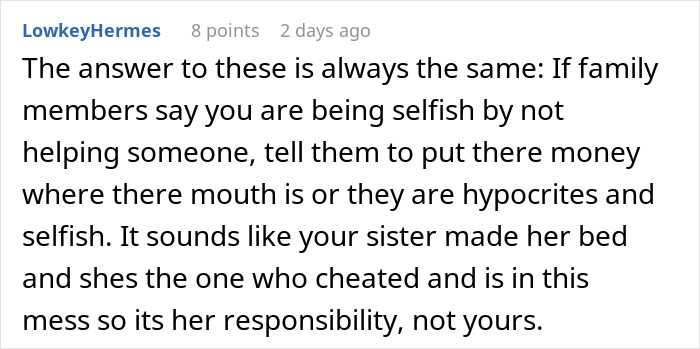
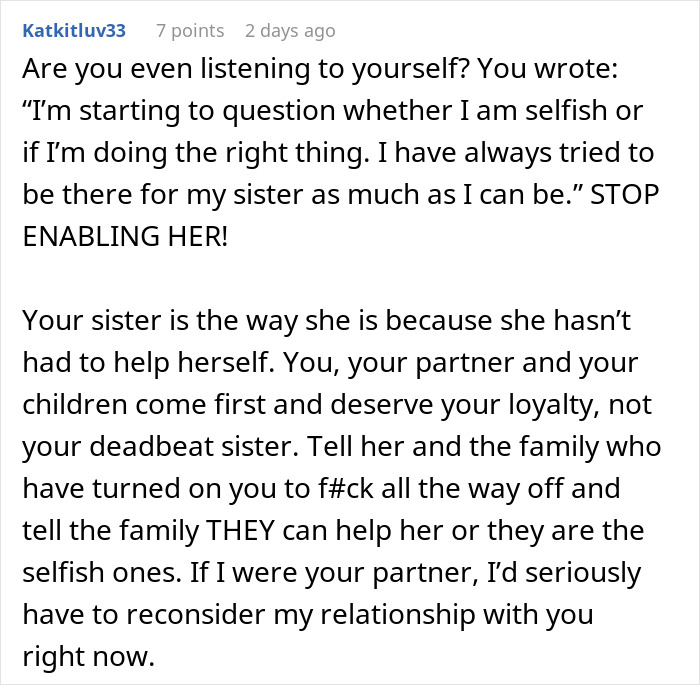




 Follow Us
Follow Us





